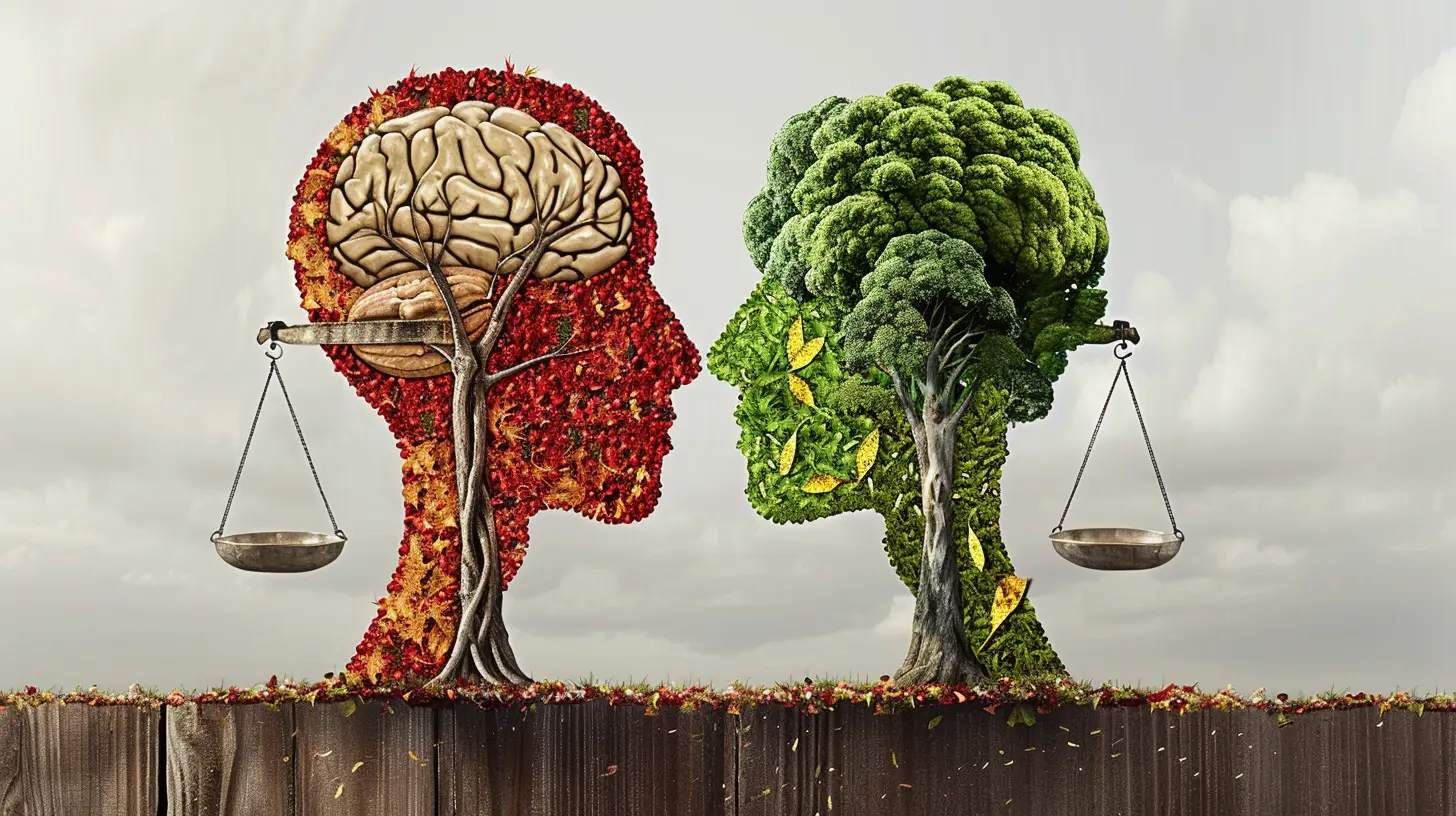Could an Elimination Diet Help You Balance Your Hormones?
19 November 2025
Hormones… those tiny chemical messengers in your body that quietly (and sometimes not so quietly) run the show. From your moods to your metabolism, your skin to your sleep – hormones are at the heart of it all. So, when they’re out of whack, boy do you feel it, right?
Maybe your energy’s tanked, your skin’s throwing tantrums, your weight won’t budge, or your cycle’s being plain rude. Whatever the case, you’re probably wondering, “What gives?” Well, friend, have you ever considered that food – yep, that beloved avocado toast or that mid-week pizza binge – might be part of the hormone chaos?
That’s where the elimination diet swoops in like a health detective. It’s not about cutting calories or fitting into skinny jeans – it’s about getting your body to send you clearer signals. Curious? Let’s break it down.
What is an Elimination Diet Anyway?
Okay, think of an elimination diet as a detox for your gut and hormones – but minus the juice cleanses and celery sticks. Basically, you temporarily remove foods that are common troublemakers (like dairy, gluten, soy, sugar, etc.) and then, slowly reintroduce them one by one to see how your body reacts.It’s like playing food detective while your body spills the tea.
You’re looking for any unpleasant symptoms that pop up – bloating, mood swings, acne, headaches, fatigue. And, surprise surprise, many of those symptoms often link back to hormone imbalances.
The Food-Hormone Connection: What’s Going On Here?
So what’s the big deal? How can what you eat possibly tie into your estrogen, cortisol, thyroid, or insulin levels?Well, actual science backs this up. Certain foods can either support or sabotage hormone health. Your body depends on nutrients like healthy fats, fiber, and protein to make and regulate hormones. But when you chuck in processed foods, artificial additives, and allergens into the mix, things can start to unravel.
Here’s how food affects your hormones:
- Inflammation: Chronic inflammation disrupts hormone signals. Some foods (hello, trans fats and sugar) stoke the inflammation fire.
- Gut Health: Your gut and hormones are in a long-term relationship. A compromised gut can mess with estrogen detox, thyroid function, and more.
- Blood Sugar Levels: Foods that spike your insulin (think white bread, soda, candy) can trigger a domino effect on other hormones like estrogen and testosterone.
- Liver Load: The liver is your hormone filter. If it’s overwhelmed with food toxins, alcohol, or processed junk, it can’t clear out excess hormones properly.
So, yeah – your plate is more powerful than you think.
Could an Elimination Diet Reset the Hormone Chaos?
Short answer? Yes – for many people, it can. But let’s not get ahead of ourselves.An elimination diet isn’t magic, but it can be a game-changer in identifying sneaky food triggers and giving your body a breather from the chaos. You’re basically clearing out the noise so your hormones can finally be heard.
What Can an Elimination Diet Help With?
Let’s paint a picture. These are some common hormone-related issues where people have found real relief by adjusting their diet:- PMS and painful periods (yay for fewer cramps!)
- Acne and skin breakouts
- PCOS symptoms
- Mood swings and irritability
- Fatigue and brain fog
- Weight gain or stubborn belly fat
- Thyroid dysfunction
- Insulin resistance
Sound familiar? If you’re nodding your head, keep reading.
So… How Do You Actually Do an Elimination Diet?
Alright, let’s break it down into two main phases: elimination and reintroduction.🎯 Phase 1: The Elimination (2-6 weeks)
During this phase, you’ll carefully remove common culprits that could be throwing your hormones off. Here are the usual suspects:- Gluten
- Dairy
- Soy
- Refined sugar
- Corn
- Eggs
- Alcohol
- Caffeine (sorry, coffee-lovers)
For 2–6 weeks, you’ll give your body a clean break. It sounds daunting but stick with me. You’ll be focusing on wholesome, nutrient-dense foods like:
- Fresh veggies and fruits
- Lean proteins
- Healthy fats (avocado, olive oil, nuts)
- Gluten-free grains like quinoa or brown rice
- Plenty of water and herbal teas
Think of it like hitting the reset button.
🔄 Phase 2: The Reintroduction (About 5–7 days per food group)
Once your symptoms have improved (and they often do – think better sleep, calmer moods, brighter skin), it’s time to play detective.You’ll reintroduce one food at a time – very slowly – and track your body’s response. Try eggs for a few days. Then stop. Then try dairy. And so on.
If a food triggers your symptoms again, you’ve found a clue. That’s your body saying, “Hey, not cool with this one.”
Hormones That Often Benefit from an Elimination Diet
Let’s get nerdy for a sec (but in a fun way).🧠 Estrogen
Too much or too little estrogen can mean major mood swings, irregular periods, and bloating. Certain foods can impair estrogen metabolism – especially if your gut or liver isn’t in tip-top shape.By removing inflammatory and estrogen-mimicking foods (like soy or dairy), you help your body metabolize estrogen more effectively.
😴 Cortisol
Ah, the stress hormone. If you’re living on caffeine, sugar, and zero sleep, your cortisol is probably screaming. Elimination diets help here by reducing stimulants and focusing on blood sugar balance, which keeps cortisol nice and steady.🍩 Insulin
If you’re constantly craving carbs and riding the sugar rollercoaster, your insulin’s likely out of sync. An elimination diet can stabilize blood sugar and improve insulin sensitivity by cutting out refined carbs and sugars.🦋 Thyroid Hormones (T3, T4)
The thyroid is super sensitive to inflammation and nutrient deficiencies. Gluten and soy are known thyroid disruptors in some people. Removing them can help calm autoimmune reactions (like in Hashimoto’s) and improve thyroid function.Tips for a Successful Elimination Diet
Let’s be real – this ain’t always easy. But it’s doable with the right mindset, tools, and maybe even a buddy system.Here are some solid tips to keep you sane (and successful):
1. Plan Ahead: Batch cook hormone-friendly meals and clear out your pantry. Junk in the house = temptation city.
2. Read Labels Like a Pro: Hidden gluten, sugar, and soy are lurking in everything from sauces to snacks.
3. Keep a Food Journal: Note what you're eating, how you're feeling physically and emotionally. Patterns will pop up.
4. Get Support: Whether it’s a friend, holistic nutritionist, or online group, support helps keep you on track.
5. Hydrate: Flush toxins and support digestion by drinking plenty of water.
6. Listen to Your Body: Cravings, energy levels, sleep, mood – they’re all clues.
But Wait… Is This Diet for Everyone?
Not necessarily.If you’ve got a history of disordered eating, extreme dieting, or serious medical conditions, it’s best to talk to your healthcare provider before diving in.
Also, don’t expect overnight miracles. Some people notice changes within a week. For others, it takes a few cycles of reintroduction and tweaking. And that’s okay.
Healing is a journey, not a sprint – and your hormones didn’t go haywire overnight either.
Real Talk: What I Learned From My Own Elimination Diet
I’ll be honest – when I first heard about elimination diets, I rolled my eyes. “Another health trend,” I thought. But desperate to stop feeling bloated, anxious, and just “off,” I gave it a shot.Cutting out dairy and gluten wasn’t easy. I mourned cheese. I craved donuts. But by week two, my energy soared. My skin cleared. My cycle – usually aggressive – was surprisingly chill.
And when I reintroduced certain foods, the reactions were loud and clear. It was like my body finally had a chance to speak up.
I’m not perfect today, and I don’t eat “clean” 100% of the time. But I know my triggers. I know what supports my hormones. And that kind of body awareness? It’s empowering.
Final Thoughts: Is It Worth It?
If your hormones feel like they’re riding the subway with no brakes, an elimination diet might be the reset you didn’t know you needed.It’s not glamorous. It’s not trendy. It’s work. But it’s also one of the few ways to get up close and personal with your body and actually listen to what it’s telling you.
So, could an elimination diet help you balance your hormones?
Only one way to find out.
all images in this post were generated using AI tools
Category:
Hormonal BalanceAuthor:

Jackson Mahoney
Discussion
rate this article
1 comments
Zephyra Benton
An elimination diet can be a powerful tool for identifying food sensitivities that disrupt hormonal balance. By removing and gradually reintroducing foods, individuals may uncover hidden triggers, ultimately promoting a healthier endocrine system.
November 24, 2025 at 4:25 AM

Jackson Mahoney
Thank you for your insightful comment! An elimination diet can indeed be effective for identifying sensitivities and promoting hormonal balance.


